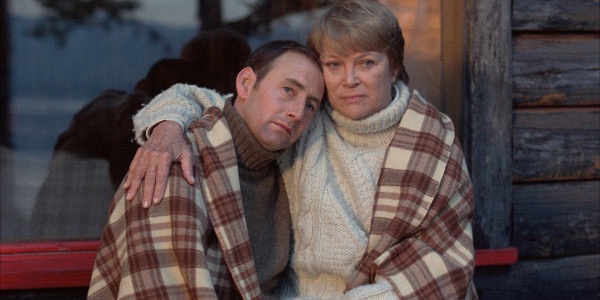Sublet BFI Flare Film Review
★★★
Directed by: #EytanFox Written by: #EtyanFox, #ItaySegal
Starring: #JohnBenjaminHickey, #NivNissim
Film Review by: Alex Matraxia

Eytan Fox’s feature Sublet takes us into the lonely lives of two gay men, generations apart. Currently screening in the BFI Flare Film Festival, Sublet is a mature and relevant film where the delicately acted leads make up for a predictable, sometimes questionable script. The film centres around the middle-aged Michael (John Benjamin Hickey), a New York Times journalist spending less than a week in Tel Aviv, which prides itself on being one of the sexiest cities in the world. Such sex appeal is written all over the city, from its hunky beaches to charismatic artists – including Tomar (Niv Nissim), Michael’s newfound ‘landlord’, a film student who has sublet his weed-ridden, gore-postered flat. Having mixed up the dates, Tomar ends up crashing in his own flat with Michael – and Fox’s comedy of manners commences.
The predictable elements of the film include the very unlikely romance blossoming between Tomar and Michael. A climactic consummation scene is rather mishandled as a moment of sock-puppetry invites the pair’s first kiss. And the initial is-he-is-he-not-gay plot device surrounding Tomar is luckily discarded early on, having become something of a staple in gay romantic narratives. Part of the reason these plot elements feel especially disagreeable is that the two leads are at their best when exploring non-erotic tensions – their generational differences make for a vivid, unexpected chemistry, something that flirts with a father-and-son dynamic.
The characters are also beautifully expressed and fleshed by Hickey and Nissim. Hickey’s silences are especially poignant, where he seems wise and forgotten at the same time – both relevant and relic-like. Having lived through the AIDS crisis, Michael is confronted by Tomar’s dismissal that AIDS is too ‘depressing’; Tomar embodies a modern-day, complacent gay attitude, reluctant to acknowledge his cultural past, living only for a moment’s pleasure. Hickey even brings a sort of repressed pity to his character, where Michael seems confused that the latest generation of artists, such as Tomar’s friend Daria ( Lihi Kornowski), would rather flee Israel and move to Berlin rather than try and make Tel Aviv more hospitable for artists. When Michael mentions how his generation fought to survive, Daria opts for flight instead, saying self-exile can be her form of ‘revolution’. Michael’s face seems caught in an inarticulate loss, as it’s painfully clear they’ve missed his point.
Tomar is an aspiring filmmaker at the start of his career and his talent seems questionable, yet it’s not important to Michael who seems to admire Tomar just for being young, being at a point in life where the world seems conquerable. His life is unmarred by tragedy, his world and its pleasures seem infinite. On the other hand, Michael has lived his life and accepts life as a continuous compromise. Their relationship doesn’t seem to need the romantic climax to make it exciting, given that it’s so brilliantly rooted in a fascination with each other as something Other – young and old. Tomar cries when Michael leaves for New York, and Michael’s absence really feels more like an absence of purpose. Michael’s life is History, capital H, his past involving AIDS, gay rights, gay marches. Tomar has none of that, and has only really experienced this history through Michael. By connecting with his generational past, Tomar seems to learn something about himself.
Sadly there’s much emphasis on how a child would fill the hole in Michael’s life, a somewhat reactionary idea implicating gay men who do not have children as somehow empty, vacuous, wandering individuals. The exposition of his tragic childlessness is one aspect that perhaps stops the film from exploring more nuanced territory in modern queer relationships; instead it stations the film in a charming but harmless gay, liberal rom com. But for a charming, harmless rom com, it’s solid, charismatic and touching in its exploration of trauma, companionship, gay identity and memory. Sublet may have its flaws, but it’s undeniably moving – and at times, surprisingly beautiful.






